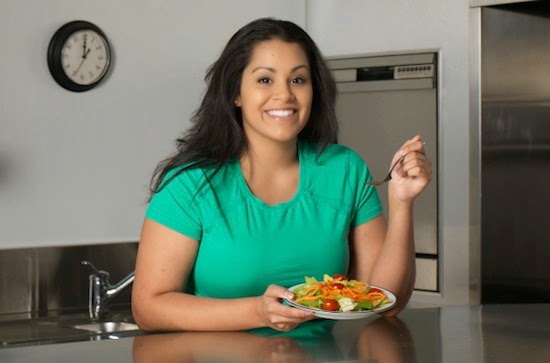In Sunday’s column on the Food For Fertility program, the focus was primarily on women who need to improve their nutrition and lower their weight in order to be eligible for assisted reproductive technology, or to reduce the chronic inflammation that can interfere with ovulation and conception. However, women in this demographic are not the only women who benefit from improving their health with good nutrition and physical activity prior to trying to conceive!
“I’ve always been a big proponent of nutrition for women who are planning a pregnancy,” said Dr.
Angela Thyer, MD, one of the founding partners of
Seattle Reproductive Medicine. “We believe strongly that people should be eating a healthy diet and doing everything they can to get themselves in the best state of health when they are planning a pregnancy.”
“Everyone I see wants to learn how to eat healthier for their pregnancy,” she said, pointing out the benefits of optimizing health extend far beyond conception.
“Women come to me with so much misinformation, and it’s helpful to get evidence-based information on diet and lifestyle,” she said.
Theresa, the Food For Fertility graduate I interviewed, said that getting this sort of guidance from Simon and Dr. Thyer helped her avoid developing gestational diabetes and pregnancy-related hypertension, two conditions she was at high risk for. “I think a huge part of what helped us was lifestyle changes made before and during.”
Theresa said she paid close attention to Simon’s advice on how eating in the early stages of twin and multiple pregnancies is different than eating for a singleton (Theresa gave birth to twin girls). Less time, less space. “At a certain point in a twin pregnancy, your insides are so squished, making it hard to eat enough,” she said. “You need to frontload the nutrients early in the pregnancy.”
Theresa had a healthy pregnancy, which, along with successful conception, was one of her biggest goals. But her interest in learning to eat more healthfully was far broader than those nine months.
“I did this partially for myself and to raise my level of fitness and health, but I also did it because I really, really want to feed my children properly from the beginning,” she said. “The things I learned about how to eat properly rather than having to constantly diet is helping me feed my children well.”
Theresa said she’s trying to make sure her kids have a healthy balance of foods and are exposed to a lot of flavors and fresh foods—but can still have pie on Fourth of July and cake at birthday parties. “I want them to know that this is what food is, it’s fresh and healthy and something to enjoy. It’s to nourish you as well as to taste good.”
“It’s so hard to retrain yourself if what you think tastes good is Little Debbie cakes and Spaghetti O’s,” she said. “My husband and I talked about it, and we decided we don’t want to have chicken nugget children…kids who won’t eat anything but chicken nuggets.”
As her girls grow up, she said she and her husband will teach them that there are “sometime” foods and “every day” foods.
“I really want them to not have a lot of hang-ups about that sort of thing. I want them to know that there’s food that you can have as much as you want all the time when you’re hungry, and then foods that we have only once in a while.”
Feeding the family nourishing food has truly become a team effort. Theresa is in charge of feeding the babies, and her husband is in charge of feeding the adults.
“I used to do most of the dinner prep and chopping, and there was a lot of back and forth about what we’re going to eat, and how I needed more vegetables and fewer calories,” she said. Around the time she got pregnant, her husband “jumped on the bandwagon” to eat better and become more active.
“Now he does all of the shopping and all of the dinner prep and chopping, she said. “He watches all of the nutrition for us.”
For more information on pre-conception and pre-natal nutrition, see the links to my Nutrition & Pregnancy series in my Monday post or on the About This Blog page.
You can learn more about the next Food For Fertility class series starting September 6, on the Mind Body Nutrition or Seattle Reproductive Medicine websites.
Photo source: Centers for Disease Control and Prevention







